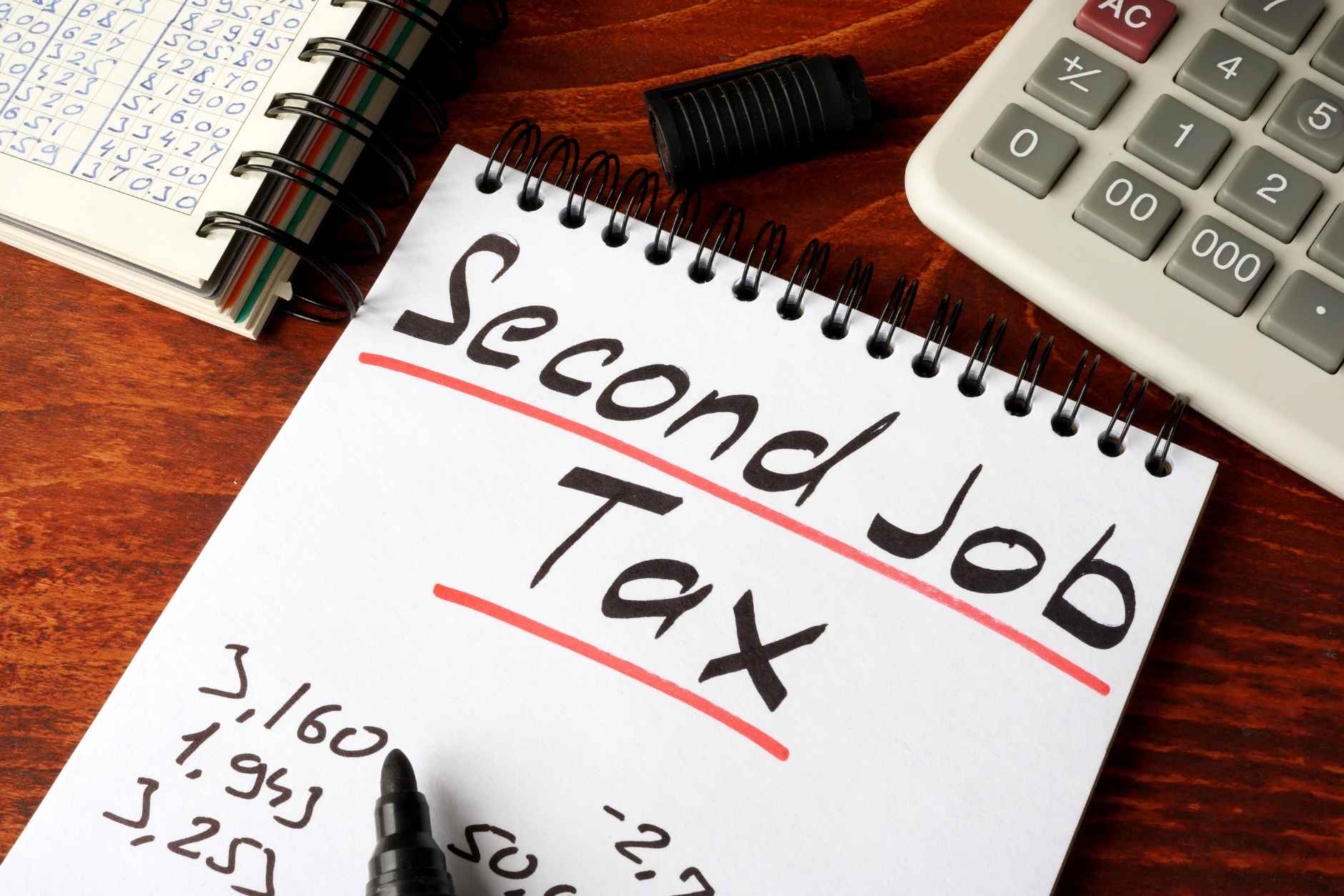
Do I Need to Pay Tax on My Second Job?
If you’re working two jobs in the UK, you might be wondering whether you need to pay tax on your second job. The short answer is yes—any income you earn from a second job is subject to tax, just like your primary job. However, the way HMRC handles taxation for your second job might be a bit different, and it’s essential to understand how this affects your take-home pay, tax codes, and National Insurance contributions.
Let’s break down how tax works for multiple jobs, explain how to ensure you’re taxed correctly, and highlight the steps you need to take to stay compliant with HMRC. For tailored advice on managing your taxes, especially if you have more than one source of income, CANGAF Accountants is here to help.
How Does Tax Work for Two Jobs?
When you have more than one job, HMRC will tax both jobs based on the total amount of income you receive from all your employment. Here’s how it works:
1. Personal Allowance
Every individual in the UK is entitled to a Personal Allowance, which is the amount of income you can earn before you have to start paying tax. For the 2023/24 tax year, the standard Personal Allowance is £12,570. However, this allowance is only applied to one job—typically your primary job.
Your second job is usually taxed at a higher rate because your Personal Allowance is already being used up by your first job. This means all of the income from your second job is taxable.
2. Tax Codes
HMRC issues tax codes to employers to determine how much tax to deduct from your salary. For your main job, you’ll typically have a tax code such as 1257L, which means you receive the full Personal Allowance.
However, for your second job, you may be issued a different tax code, such as BR or D0, which applies a flat tax rate to all of the income you earn from that job:
- BR (Basic Rate): Taxed at 20% on all income.
- D0: Taxed at 40% (higher rate) if your combined income from both jobs exceeds the higher tax threshold.
3. National Insurance Contributions
In addition to income tax, you’ll also need to pay National Insurance Contributions (NICs) on both jobs. Unlike income tax, NICs are calculated separately for each job. This means if both jobs pay you below the NICs threshold individually, you might not have to pay any NICs at all, even though your combined earnings might exceed the NICs threshold.

4. Second Job and PAYE
Both your primary and second jobs will usually operate under PAYE (Pay As You Earn), meaning your employer will deduct tax and NICs directly from your salary before you get paid. However, because your second job doesn’t benefit from the Personal Allowance, it can feel like you’re paying more tax on that income, but that’s because your tax-free allowance has already been applied to your main job.
Key Tax Rates to Consider for Multiple Jobs
When working two jobs, you need to be aware of the following UK tax rates for the 2023/24 tax year:
- Basic Rate (20%): Applied to earnings between £12,570 and £50,270.
- Higher Rate (40%): Applied to earnings between £50,271 and £125,140.
- Additional Rate (45%): Applied to earnings above £125,140.
If the combined income from your two jobs pushes you into a higher tax bracket, the higher rate of tax will apply.
HMRC Tax Codes for Multiple Jobs
Tax codes are crucial to ensuring that the correct amount of tax is deducted from your pay. Here’s how they work for two jobs:
1. Primary Job Tax Code
For your main job, you’ll usually have the tax code 1257L (or its equivalent), which means you’ll benefit from the Personal Allowance of £12,570. This tax code ensures you pay no tax on the first £12,570 of your earnings from this job, with the remainder taxed at the standard rates.
2. Second Job Tax Code
For your second job, HMRC will assign a different tax code—most commonly BR. This tax code assumes that all the income from your second job is taxable at the basic rate (20%), as your Personal Allowance is already being used by your first job. In some cases, especially if your total earnings are higher, you might be issued the D0 or D1 tax code, which applies the higher (40%) or additional (45%) rates of tax.
3. Emergency Tax Codes
If you start a second job without providing the correct tax information to your new employer, you might be placed on an emergency tax code, which could result in overpaying or underpaying tax. It’s essential to provide your second employer with your National Insurance number and details of your other income to ensure you’re taxed correctly.

If you think you’re being taxed incorrectly, you can contact CANGAF Accountants for guidance on adjusting your tax code.
What If You’re Self-Employed?
If your second job is not a traditional employment role but a self-employed side hustle, the tax rules are slightly different. You’ll still need to declare your income, but instead of being taxed through PAYE, you’ll submit a Self Assessment tax return.
1. Self-Employed Income
As a self-employed person, you’ll need to pay income tax on any profits you make from your second job, as well as National Insurance. You’ll need to register as self-employed with HMRC and submit a Self Assessment tax return every year.
2. Trading Allowance
If your self-employed income is less than £1,000 a year, you can benefit from the trading allowance, which means you don’t need to report this income or pay tax on it.
3. Self-Assessment
If your combined income from your first job and self-employed work exceeds the Personal Allowance, you will need to declare all your earnings through Self Assessment. This means completing a tax return each year and paying tax on any profits after deducting allowable expenses.
How to Ensure You’re Paying the Right Tax
To avoid underpaying or overpaying tax on your second job, it’s important to:
- Check your tax code: Make sure you’re on the correct tax code for both jobs. If your tax code is wrong, you may end up overpaying or underpaying tax.
- Inform HMRC: Notify HMRC when you take on a second job so that they can assign the correct tax codes.
- Use the Personal Allowance correctly: Ensure that your Personal Allowance is applied to your main job, not your second job.
- Complete a Self Assessment: If you have self-employed income or other sources of income, complete a Self Assessment tax return to declare all your earnings.

CANGAF Accountants Can Help
Managing tax for two jobs can get complicated, especially if you’re unsure about the right tax code or how much you should be paying. CANGAF Accountants can help you navigate the complexities of paying tax on multiple sources of income. We can ensure that your tax codes are accurate, help you with Self Assessment tax returns, and provide expert advice on minimizing your tax liability.
Whether you’re juggling two PAYE jobs, running a side business, or self-employed, we can offer tailored support to help you stay compliant with HMRC and avoid any costly mistakes.
CANGAF Accountants
235 Tonge Moor Road, Bolton BL2 2HR
Email: info@cangafltd.com
Phone: 01204 859315
Conclusion
In summary, if you’re working two jobs in the UK, you will need to pay tax on both, but the process can be a little more complex than for a single job. It’s essential to understand how your tax code works, ensure your Personal Allowance is correctly applied, and, if necessary, file a Self Assessment tax return to declare all your income. By managing your tax obligations effectively, you can avoid any unexpected bills and ensure you’re compliant with HMRC.
If you’re uncertain about your tax situation or need advice on managing your finances across multiple jobs, contact CANGAF Accountants today for expert guidance.


